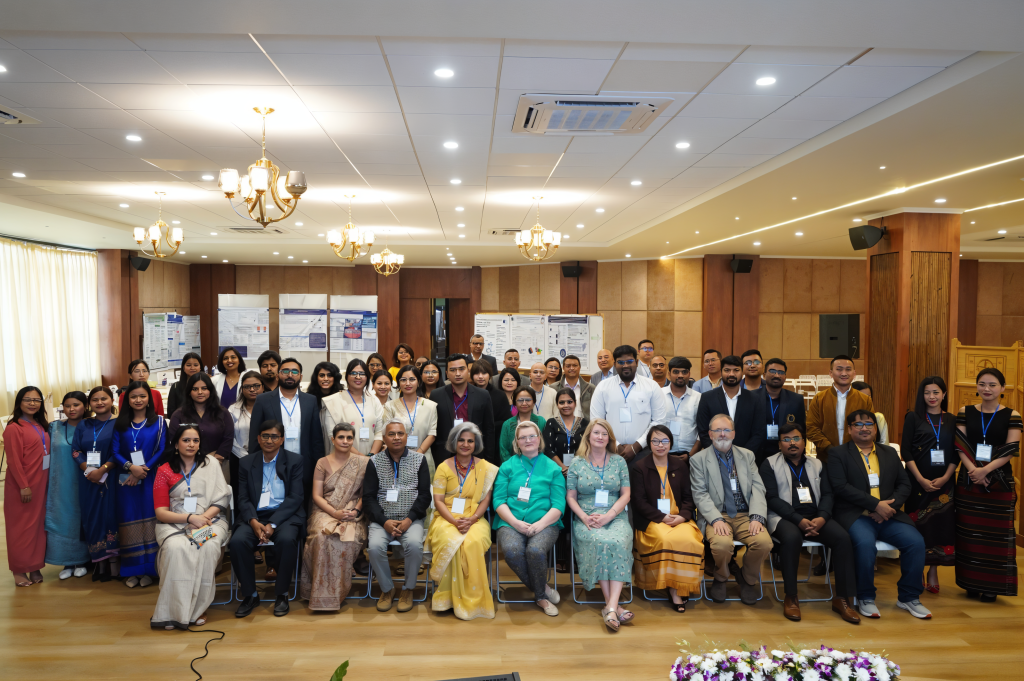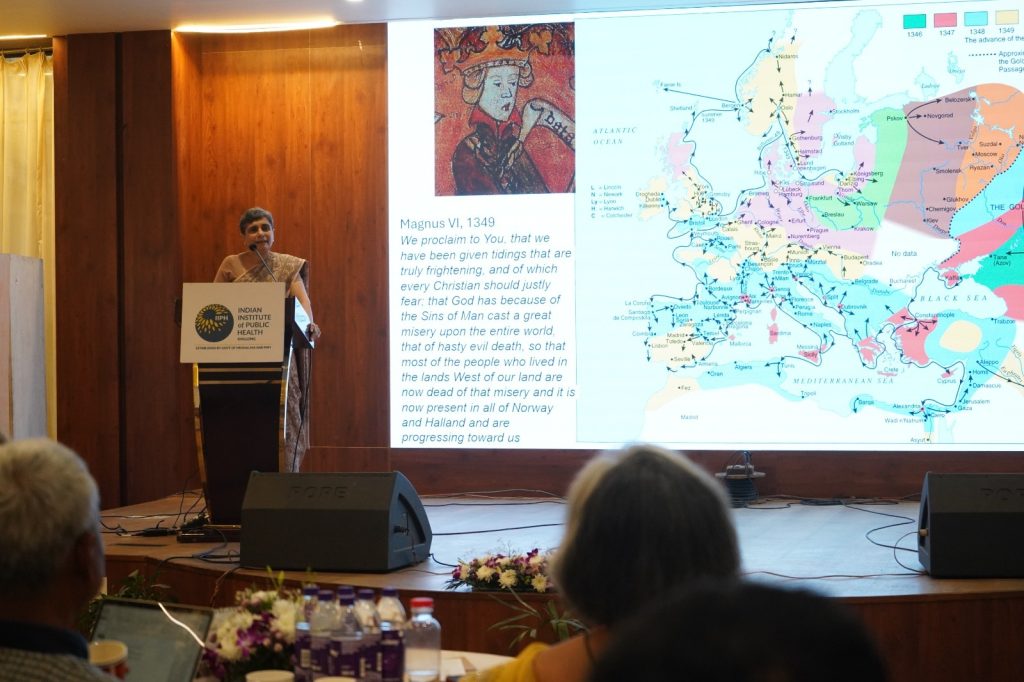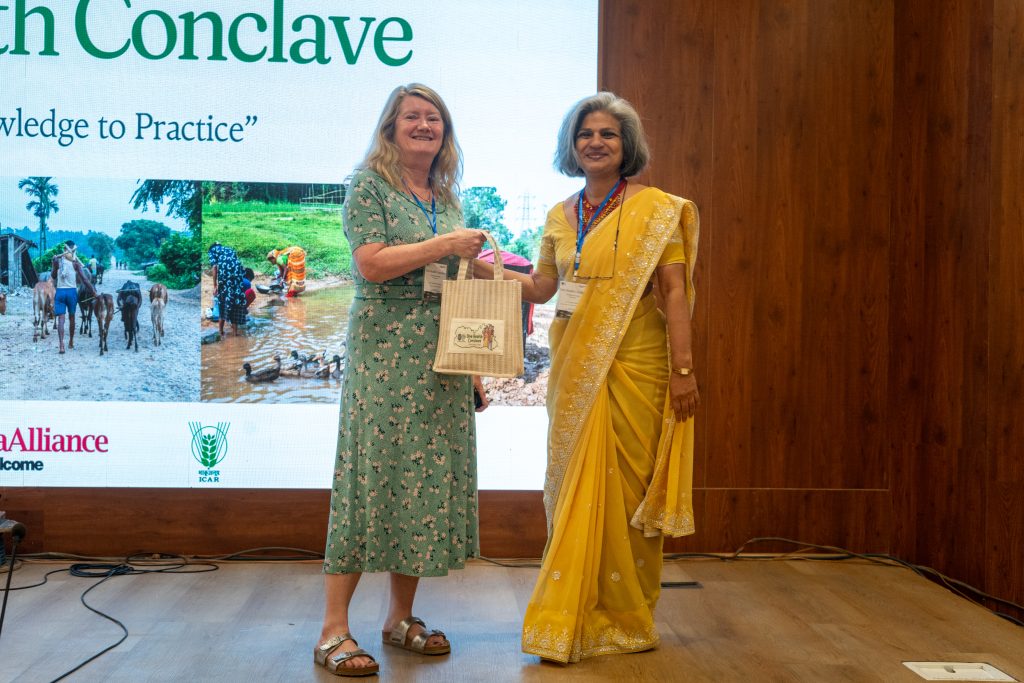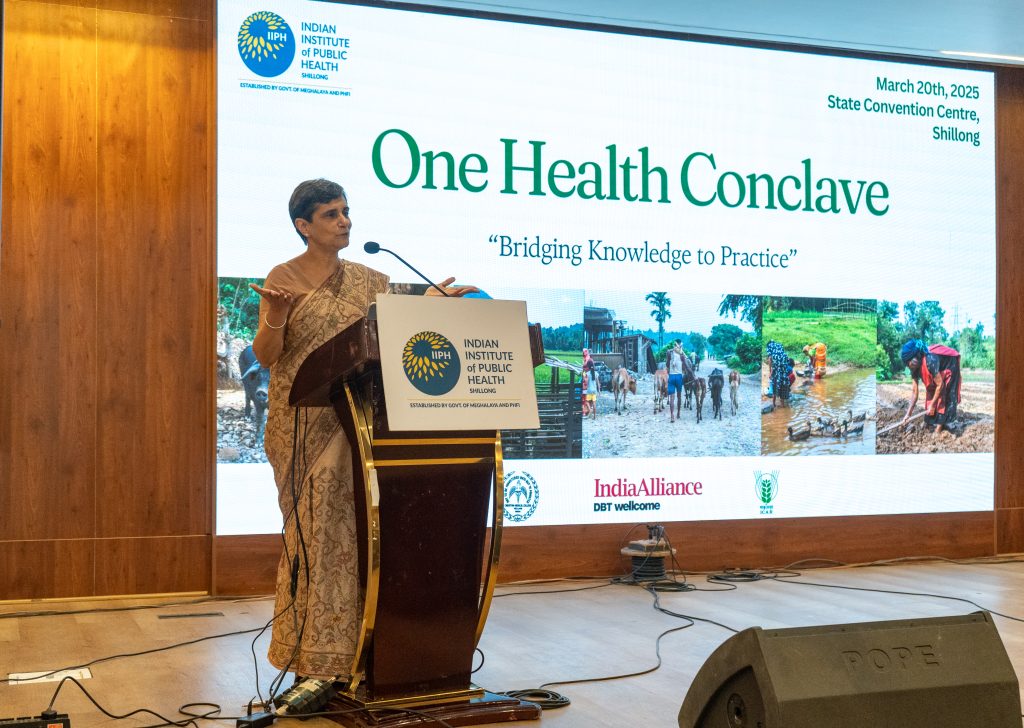The One Health Conclave at the State Convention Centre, organized by the Indian Institute of Public Health (IIPH) Shillong, brought together experts from across India and the world to discuss health issues related to the environment, animals, and humans, using a ‘one health’ approach. The occasion reaffirmed how crucial interdisciplinary cooperation is in addressing public health issues zoonotic diseases and antibiotic resistance. The IIPH has been doing extensive field epidemiology work on diseases such as scrub typhus, JE, leptospirosis and Brucellosis in collaboration with ICAR and CMC Vellore; an overview of the work was presented by Prof Sandra Albert, director IIPH Shillong.
Prof. Paul Newton, from the Centre for Tropical Medicine and Global Health, Oxford University, shared his experiences from Laos, a country that shares many cultural and geographic similarities to Meghalaya and the northeast region. Prof Newton’s work has documented various neglected tropical infectious diseases such as murine typhus and others that disproportionately affect rural populations.
Dr. Sangeeta Agarwal, from the office of the Principal Scientific Advisor to the Government of India spoke about the purpose and goals of the National One Health Mission. The mission aims to work with states to strengthen health systems, build resilience and enhance preparedness in dealing with epidemics and pandemics.
Leading national and international experts in mosquito research, Dr Aparup Das form ICMR sheds light on the evolutionary processes underlying the host-switching behaviour of malaria parasites from the Indian rhesus monkeys, while Dr Cathy Walton, Manchester University spoke about the evolution of mosquito host preference in the emergence of zoonotic diseases.
Prof. Elena Naumova, from Tufts University in the United States, spoke about the value and potential of Artificial intelligence (AI) in research. AI can be used as a tool in descriptive, prescriptive and predictive analysis in the epidemiological study of new evolving diseases, antimicrobial resistance monitoring, zoonotic disease surveillance, early outbreak prediction, food safety and security. She said “Ethical challenges still exist even though AI helps to solve problems”, emphasising the need to be unafraid but also retain the ability to confront the ethical challenges that it will bring up.
Prof. Sitara Ajjampur from CMC Vellore talked about their interdisciplinary research in antimicrobials used in poultry farming and the relevance of high antibiotic use in poultry feeds and how it contributes to the emergence of extensive antibiotic resistance.
Veterinary scientists from ICAR Dr Parimal Roy, Dr. Arun Milton, Dr Samir Das, shared their experiences from research in the veterinary field and highlighted the need to integrate it to people and communities.
Dr. Gagandeep Kang, Director diagnostics, genomics and epidemiology at the Gates Foundation, USA spoke about the ‘future of contagion’, she painted a picture of epidemics and pandemics across the centuries and how humans dealt with it and emerged stronger. “A changing world requires changing science and new data sources,” she said.




